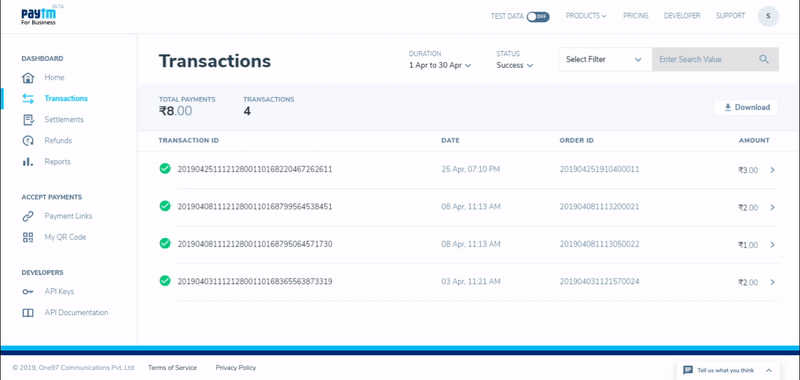Refund are reversal transactions wherein complete or partial money is moved back to customer’s source account (account from which actual payment was made). A refund can only be created for a successful or settled transaction. Use case for a refund arises in the following scenarios:
-
Customer initiated refund (returns/cancellation) - Customer has changed his mind about the consumption of product pre/post order delivery
-
Merchant initiated refund - Refund can be initiated by the merchant in the following scenarios:
-
Product/service is out of stock
-
Merchant works on a prepaid model wherein the initial amount was higher than the final billed amount (prepaid service model)
-
Mismatch in transaction status between Paytm and merchant wherein transaction is failed state at merchant's end but is successful at Paytm's end.
-
You can initiate partial or complete refunds to your customer’s source account. A refund request usually takes 7-14 business days to reflect in customer’s account depending on the bank used for payment.

